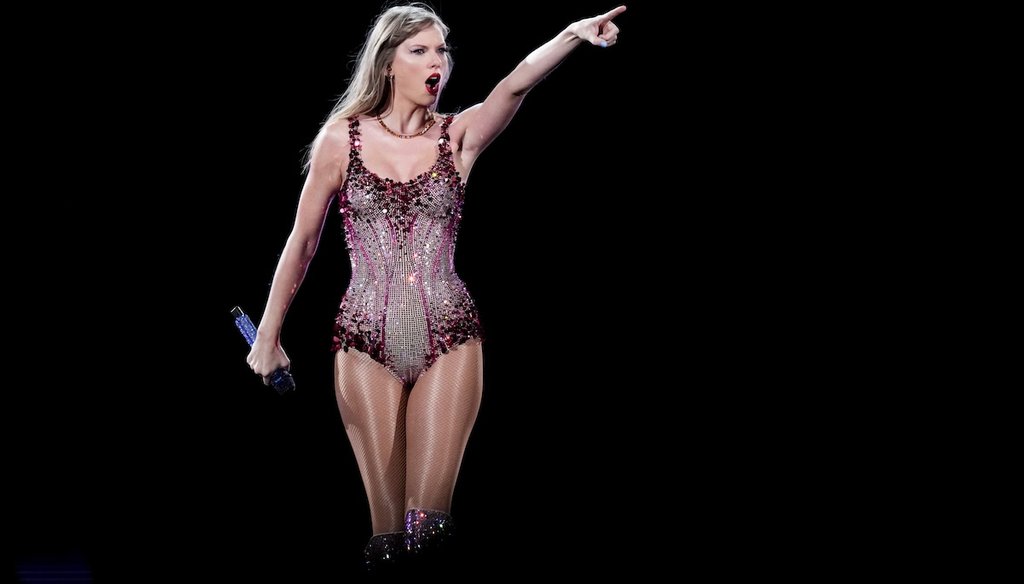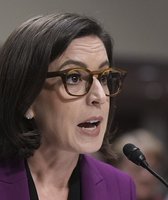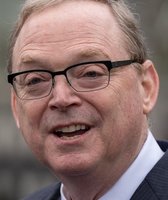Get PolitiFact in your inbox.

Taylor Swift performs during an Eras Tour concert in Buenos Aires, Argentina, on Nov. 9, 2023. (AP)
If Your Time is short
-
Taylor Swift has encouraged her Instagram followers to register to vote and cast their ballots. She endorsed Joe Biden in 2020 but has not weighed in on the 2024 race.
-
Experts say it often takes more than a single message or action for celebrity endorsements to move the needle on elections.
-
Our mission: Help you be an informed participant in democracy. Learn more.
The expected presidential rematch between two men, ages 77 and 81, is a fight over many things: How to protect the border; foreign aid to Israel and Ukraine; abortion access. And now, the potential for a 34-year-old superstar’s endorsement.
Last fall, Taylor Swift encouraged her more than 270 million Instagram followers to register to vote, leading to a surge in registrations.
Now Swift’s political influence is getting renewed attention amid a freakout among conservative media that she could endorse Joe Biden this year and lead her fans to tip the election in his direction.
One unnamed source close to former President Donald Trump said top Trump allies will plot a "holy war" if Swift endorses Biden, Rolling Stone reported.
But it is misguided to assume that Swift’s potential involvement in the race would be a magic bullet with guaranteed results. Experts say it often takes more than a single message or action for celebrity endorsements to move the needle in elections. And younger people could be particularly hard to sway because they consistently chalk up the lowest turnout rates at the polls. An endorsement would draw attention, but her fans already lean left.
Sign up for PolitiFact texts
Swift’s involvement in politics
Swift, who registered to vote in 2008, largely avoided politics until 2018, when she endorsed Democrat Phil Bredesen in Tennessee’s U.S.Senate race against then-Rep. Marsha Blackburn, a Republican.
In a 2020 documentary about Swift, "Miss Americana," she said she regretted that she didn’t speak out against Trump in 2016.
Trump lashed out about Swift’s Bredesen endorsement, saying he liked her music "about 25% less now." Blackburn defeated Bredesen — a widely respected two-term governor — by double digits.
In August 2020, Swift alluded to Trump’s attacks on mail voting during the pandemic and told her fans to "request a ballot early and vote early." She endorsed Biden in October 2020.
But many of her social media posts are nonpartisan, encouraging fans to register and vote but not specifying a party to support.
"Are you registered to vote yet?" Swift wrote on Instagram Sept. 19, National Voter Registration Day. "I’ve been so lucky to see so many of you guys at my US shows recently. I’ve heard you raise your voices, and I know how powerful they are. Make sure you’re ready to use them in our elections this year! Register to vote in less than 2 minutes at Vote.org/NVRD." Swift is not officially affiliated with the Vote.org nonprofit organization.
The day that Swift posted that message, Vote.org received about 35,000 new registrations, up from 25,000 the same day in 2022. Two-thirds of those 2023 registrations were people ages 18 to 29.
Swift’s spokesperson did not respond to a request for comment about whether Swift plans to continue to encourage registration or endorse Biden.
What role does voter registration play?
Registering thousands of new voters suggests that additional votes will be cast, since in most places the first step to voting is registering, said Jonathan Nagler, co-director of New York University’s Center for Social Media and Politics.
Being a registered voter can lead to more extensive outreach from campaigns and organizations that use lists of registered voters for get-out-the-vote efforts, said Alberto Medina, spokesperson for the Center for Information and Research Civic Learning and Engagement at Tufts University, which tracks youth voting.
"Our research has found that youth who hear from campaigns and candidates, especially multiple times per cycle, are more likely to vote," Medina said, adding that, "given Swift’s massive cultural footprint, her potential impact could be unprecedented."
"But research suggests it may take more than a single message or action," he said.
A fall poll of about 2,100 18- to 29-year-olds by the Harvard Institute of Politics asked whether respondents would be more likely to vote if they received a call or text from Swift encouraging them to do so. Nearly two-thirds said it would make no difference, 19% said it would make them more likely to vote, and 15% said it would make them less likely to vote.
Swift’s fans, however, span all age groups. According to a Morning Consult poll of adults, 45% of "avid" Swift fans are millennials aged 27 to 42. Another 11% are in Generation Z, who were born between 1997 and 2012. The remainder is split about evenly between baby boomers and Generation X. (That poll was conducted in early March, and Morning Consult wrote, "Swift has not yet earned the admiration of many Gen Zers, but perhaps her ‘Eras’ tour can change that.")
Swift’s 2024 influence could be greater than in 2020 when she endorsed Biden. Since then, she has released multiple albums and generated skyrocketing demand and publicity with her Eras Tour.
When it comes to juicing younger voter turnout, the main way Swift could have an impact is among independent voters who are fans, said Wayne P. Steger, a DePaul University political science professor. Independents "do not have the same party allegiances and, if they pay attention to political news, can be swayed," Steger said. "There may well be people who do not have a particularly strong partisan attachment and who do not pay attention to politics normally, but who do pay attention to Taylor Swift."
Mary-Kate Lizotte, an Augusta University political science professor, said Swift’s comments about politics will influence her fans and followers, as we’ve seen already, but are unlikely to influence people who are not already fans or who are her fans but are politically conservative.
"Her endorsement, however, will result in a different type of media attention to the Biden campaign, which could also be advantageous," said Lizotte, who has researched gender differences in political opinion. "Having more young and millennial women register, turnout and vote for Biden would be beneficial for the Biden ticket. Her endorsement is not likely to change anyone’s mind on who to vote for or to even influence undecided voters. But increasing registration and turnout among women who would already be likely to vote for Biden, would help the Biden ticket."
Young voters have the lowest turnout rates
Swift could inspire some young people to vote, but it’s an uphill task: People ages 18 to 29 consistently have lower turnout rates — as much as 25 to 30 percentage points lower in recent presidential elections than the rate for people 60 and older.
Observing a liberal bent among younger voters — who have favored Democrats by 7 to 13 percentage points in presidential elections since 2008 — some Republican lawmakers have sought to enact barriers to voting.
The Kentucky Senate in January backed a bill that would remove student IDs as a primary proof of identification at the polls. Idaho in 2023 banned the use of student IDs for voter ID. In Texas, laws created new obstacles to establishing early voting sites on college campuses. All three states have Republican majorities in their state legislatures.
Do celebrity endorsements have an impact?
Research suggests that celebrities can sometimes influence voter choice, but it doesn’t happen in every election.
Celebrities may have more influence in primaries, when voters are choosing among candidates who have broadly similar ideologies. Moving the needle in a general election, when the differences between nominees are more pronounced, has more to do with voter motivation.
For example, in 2016, Hillary Clinton received multiple celebrity endorsements including George Clooney, Beyoncé and Jay-Z . Many of Clinton’s endorsements came during the general election, but she still lost to Trump.
By comparison, one research paper concluded that Oprah Winfrey’s 2008 endorsement of Barack Obama resulted in approximately 1 million votes for him in the Democratic primary.
David J. Jackson, a Bowling Green State University political scientist, surveyed Ohio voters in 2016 and asked whether a particular endorsement would influence their vote. Some potential celebrity endorsements he floated produced negative results, but Jackson said his research showed that selective use of endorsements with certain targeted audiences might have an impact. For example, rocker Ted Nugent supported Trump. Jackson’s research indicated that although overall Nugent’s endorsement produced negative results, voters aligned with the tea party movement indicated that they would be positively influenced by it.
Morning Consult found in a March 2023 survey that 55% of Swift fans identified as Democrats, and the remainder were evenly split between Republicans and independents.
How much Swift does to promote Biden’s candidacy will play a major role, political experts say.
Jackson said the power of a Swift endorsement would depend on whether it’s a one-off social media post versus multiple appearances with Biden.
"There are lots of reasons why people do things, but one basic reason is because someone they like and trust asked them to do it," Jackson said.
If people like and trust Swift, he said, "then the more often and vigorously she supports Biden (if she does)," the more likely it is to have an effect.
RELATED: Taylor Swift: Singer, songwriter, psyop? How conservative pundits spread a wild theory
RELATED: No, X is not blocking users from searching for Taylor Swift because of past "pro-Biden" images
Our Sources
Taylor Swift, X post, Oct. 7, 2020
TikTok, Swift clip, March 9, 2023
V Magazine, The thought leaders issue: Taylor Swift, Oct. 7, 2020
Vogue, Taylor Swift on sexism, scrutiny, and standing up for herself, Aug. 8, 2019
PopCrave, Posts of Taylor Swift posts, Aug. 15, 2020
Entertainment Weekly, 25 Celebrities Who Are Supporting Hillary Clinton, Nov. 7, 2016
The New York Times, Inside Biden’s anti-Trump battle plan (and where Taylor Swift fits in), Jan. 29, 2024
Rolling Stone, Trump Allies Pledge ‘Holy War’ Against Taylor Swift, Jan. 30, 2023
The Hill, Hannity: Taylor Swift should ‘think twice’ about Biden endorsement, Jan. 31, 2023
CNN, Right-wing media figures target Taylor Swift with absurd conspiracy theory ahead of the Super Bowl, Jan. 30, 2024
Dallas Morning News, 2nd suit filed over ban on temporary voting sites, Nov. 27, 2019
Washington Post, Top GOP lawyer decries ease of campus voting in private pitch to RNC, April 10, 2023
CNN, Trump on Taylor Swift: ‘I like Taylor’s music about 25% less now,’ Oct. 9, 2018
Axios, "Stick to singing": MAGA backlash against Taylor Swift gets ugly, Jan. 30, 2024
Politico, What it’s like to be endorsed by Taylor Swift, Feb. 1, 2024
Morning Consult, The Taylor Swift Fandom Is White, Suburban and Leans Democratic, March 9, 2023
Cleveland.com, Here's how celebrity presidential endorsements matter: David J. Jackson (Opinion), Feb. 11, 2016
Courier Journal, Kentucky bill curbing use of college IDs as voter identification draws national concern, Jan. 31, 2023
NPR, A Taylor Swift Instagram post helped drive a surge in voter registration, Sept. 22, 2023
Boise Public Radio, Idaho's top judges question lawsuit about voting with student IDs, Dec. 11, 2023
PolitiFact, 'View' host Sunny Hostin has scant evidence for claiming GOP wants to raise voting age to 28, Nov. 17, 2022
Email interview with Jonathan Nagler Co-Director, Center for Social Media and Politics and politics professor at New York University, Jan. 31, 2024
Email interview with Amanda Wilkerson, assistant professor of higher education at the University of Central Florida, Jan. 31, 2024
Email interview with Doug Kufner, spokesperson for Tennessee Secretary of State Tre Hargett, Feb. 1, 2024
Email interview with Alberto Medina, a spokesperson for the Center for Information and Research Civic Learning and Engagement at Tufts University, Jan. 31, 2024
Email interview with Nick Hutchins, spokesperson for Vote.org, Jan. 31, 2024
Email interview with Alan Abramowitz, Emory University political scientist, Jan. 31, 2024
Email interview with David J. Jackson, Bowling Green State University political scientist, Jan. 31, 2024
Email interview with Wayne Steger, political science professor at DePaul University, Jan. 31, 2024
Email interview with Jay Riestenberg, spokesperson for the Voting Rights Lab, Feb. 1, 2024
Email interview with Mary-Kate Lizotte, professor of political science at Augusta University and author of Gender Differences in Public Opinion, Feb. 2, 2024





































